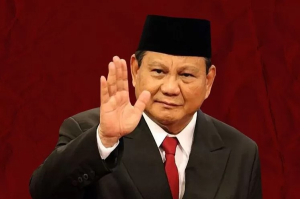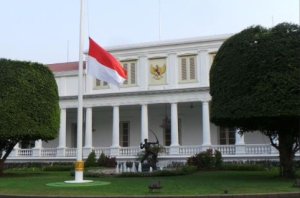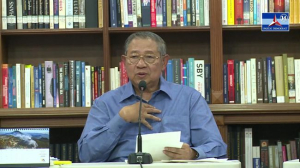Indonesia's Health Bill passed, prompting controversy over 9 disputed articles
The recent enactment of the Health Draft Bill into a law by the House of Representatives on July 11, 2023, had resulted in numerous rejections from various elements. The new Health Law is believed to contain problematic clauses.
A number of factions in the DPR that agreed to enact the Bill into a law were the Indonesian Democratic Party of Struggle (PDIP), the Functional Group Party (Golkar), the National Awakening Party (PKB), the United Development Party (PPP), and the National Mandate Party (PAN).
Meanwhile, the Democratic Party and the Prosperous Justice Party (PKS) chose not to approve the bill. On the other hand, the Democratic National Party accepted it with a notion related to mandatory spending. Furthermore, the Health Law was rejected by various organizations in the health sector because it was considered unfair and contained controversial articles.
Article 314 Chapter 2
The article states that each type of health worker can only form one professional organization.
This article is considered to be able to lead to the marginalization of professional organizations so that it will amputate the role of professional organizations.
Article 206
In this article there are health and competency education standards prepared by the minister.
Later, it will determine whether health workers are competent or not and must coordinate with the minister.
Article 239 Chapter 2
The Indonesian Medical Council (KKI), which is an independent body and directly responsible to the President, will be transferred to the minister. This will cause the minister's authority to become wider.
Article 462 Chapter 1
In this article medical or health workers who commit negligence can be punished. However, this article is controversial because in that article there is no detailed explanation regarding the points of negligence.
Article 154 Chapter 3
This article mentions tobacco as narcotics and psychotropic substances which are included in the same group as addictive substances. This inclusion will curb tobacco, because its position is equated with drugs.
Article 346 Chapter 7
In this article there is an opportunity to collect information on the genetic data of the Indonesian population which is prone to misuse.
This article states that health information system administrators can process data and information outside Indonesia.
This article stipulates that the transfer of health data and information is carried out for the purpose of overcoming extraordinary events, epidemics, pilgrimages, material transfer agreements, and international cooperation in the health sector.
However, this article is contrary to Law no. 27 of 2022 concerning Protection of Personal Data (UU PDP). Meanwhile, data transfers that have data across national borders have special requirements.
"Transferring cross-border data has prerequisites, one of which is the legal equality of PDP in the transfer destination country with Indonesia," said Wahyudi Djafar, a member of the civil society coalition, on June 21, 2023.
Article 409
In this article, there is an elimination of the minimum allocation of the health budget (mandatory spending) contained in the draft.
Previously, there was an obligation for the government to allocate a minimum health budget of 10% of the State Revenue and Expenditure Budget (APBN), and regional governments of 10% of the Regional Revenue and Expenditure Budget (APBD).
However, the new draft only states that the central government will allocate the health budget from the APBN in accordance with the needs of the national program stated in the master plan for the health sector. Meanwhile, the regional health budget will come from the APBD according to regional health needs.
Mandatory spending was previously regulated in Article 171 of Law No. 36 of 2009 concerning Health. This Law stipulates the government's obligation to allocate a minimum of 5% of the APBN, and local governments are required to allocate 10% of the APBD for health development excluding salary payments.
Article 4 Chapter 3
This article was criticized by Fatum Ade, Coordinator of the Advocacy Division of the Healthy Mental Association who considered this article discriminatory because it allows patient of psychosocial mental disorders to lose their consent or right to refuse or accept being admitted to a mental hospital.
Article 135
In this article there are two paragraphs that are considered discriminatory against people with disabilities in getting a job.
Chapter 1, in the context of procuring employees or workers in companies/agencies, medical examinations, both physical and mental, and psychological examinations must be carried out.
Chapter 2, the results of the medical examination and psychological examination as referred to in paragraph 1 are used as material for consideration in determining graduation in the selection process.
Tag
Already have an account? Sign In
-
Start reading
Freemium
-
Monthly Subscription
30% OFF$26.03
$37.19/MonthCancel anytime
This offer is open to all new subscribers!
Subscribe now -
Yearly Subscription
33% OFF$228.13
$340.5/YearCancel anytime
This offer is open to all new subscribers!
Subscribe now






